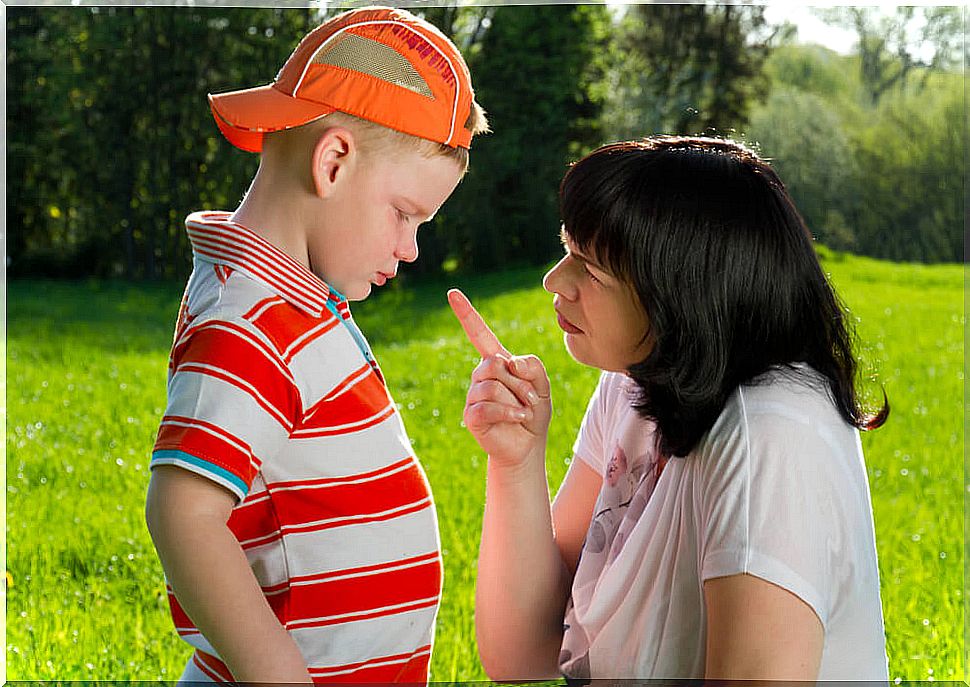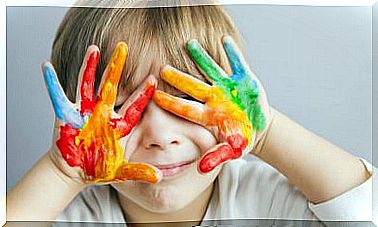Why Punishment Is Not The Solution

The art of educating our little ones is not something to be taken lightly. Art, yes, well, after all, we are collaborating in the process of creating a human being. We are laying the foundation for your future personality. And that is why today I come to tell you why punishment is not the solution in this process.
What is punishment?
First of all, let’s define what we are talking about. Punishment is part of the behavioral orientation of psychology, specifically, within the operant conditioning postulated by Skinner.
According to this approach, the behaviors we emit are driven by the consequences that follow them. In this way, a behavior will be repeated if a reinforcement comes after it and, on the other hand, its frequency will be reduced if a punishment comes after it.
The two main types of punishment must also be considered. Positive punishment is the one we most commonly associate with the term punish. This consists of “giving” or presenting something unpleasant after a behavior that we want to eliminate, be it giving a reprimand, a slap or any other aversive stimulus.
Negative punishment, on the other hand, consists of removing something nice after unwanted behavior. It can be something material, like removing a game console, or something emotional, like withdrawing your attention from the child.

Why do we use punishment?
This educational method has been used for a long time and many people defend its virtues as a way of relating to our children. What makes punishment an attractive method of education?
- It is effective in the short term. Punishment is effective in reducing the frequency of the appearance of certain inappropriate behaviors, at least for the moment.
- It is what we have lived. Many of the parents who currently use punishment with their children have learned and experienced it in their flesh with their own parents. It is the mode of interaction that they have seen all their lives and have internalized it.
- Gives a sense of authority or power over the child who is misbehaving at the time.
- It is quick and easy to implement. It does not require much investment of time or explanation, as it is enough to give or withdraw what we have chosen as punishment.
Why is punishment not the solution
However, despite the facilities that this method seems to offer, it is not the best tool we can use. The punishment is based on blind obedience. With the punishment, the child does or stops doing something “so that mom doesn’t yell at me” or “so that dad doesn’t stop me from watching TV”.
However, this does not produce positive learning, no value is internalized, nor is it understood why one should be responsible for their actions.
Although it is hard to believe, punishment transmits the idea that “here I am the boss” and generates a feeling of humiliation in the child that can have dire consequences:
- It leads to the child’s loss of trust in parents, since they do not feel treated with respect. It can generate anger, need for revenge or estrangement from parents.
- It damages their self-esteem, inhibits their spontaneity and, in many cases, generates a dependency on the person “in charge” in which the child loses initiative and avoids making decisions (so that they are not the wrong ones).
- It can cause tension, aggressiveness or lies. As a consequence of the fact that deep learning has not occurred, the child will not modify his behavior out of his own conviction and will only try not to be discovered.

Positive discipline: the alternative to punishment
So if punishment is not the solution, how do we educate, guide and teach values to our children? A very valuable alternative approach is positive discipline. Based on the studies of Adler and Dreikurs and the invaluable book by Jane Nelsen, this approach highlights the importance of maintaining respect and dignity for young children when raising them.
From this perspective, we will help raise children who act from their own responsibility and their own values, who are capable of regulating their emotions and reflecting on the natural consequences of their actions.
Let us educate from respect, love and example and take the time to understand and validate the feelings behind the (apparently inappropriate) behavior of children.










